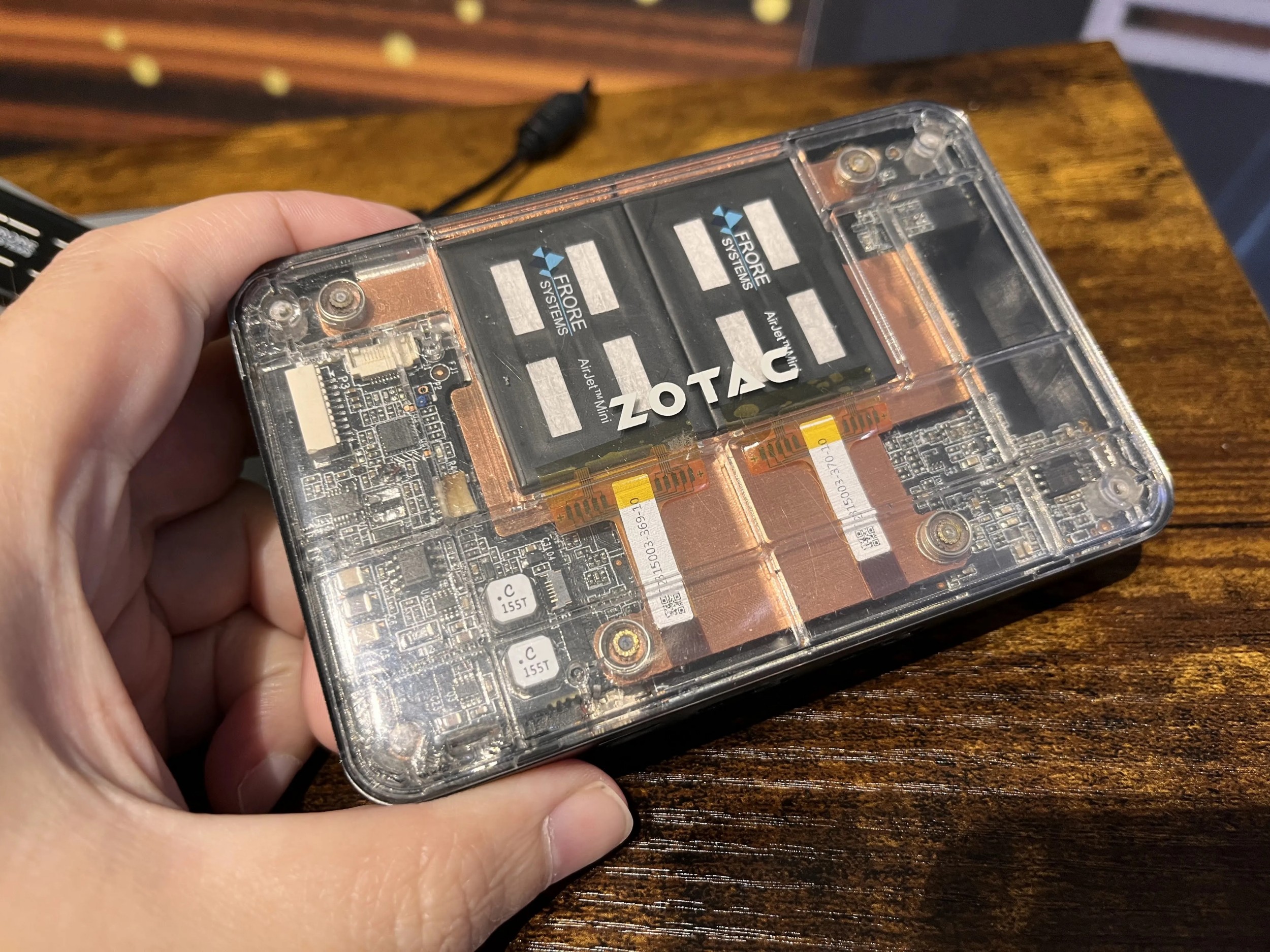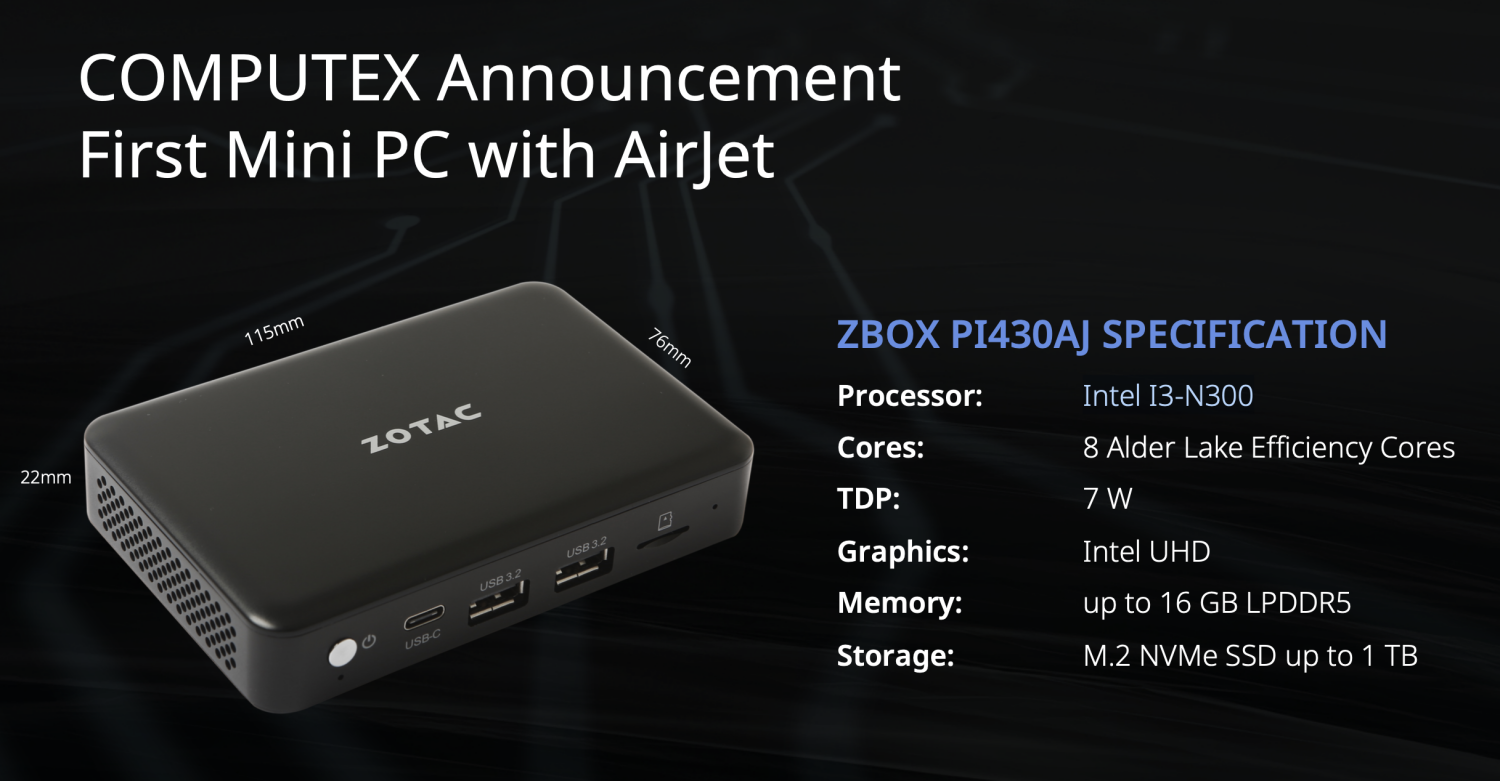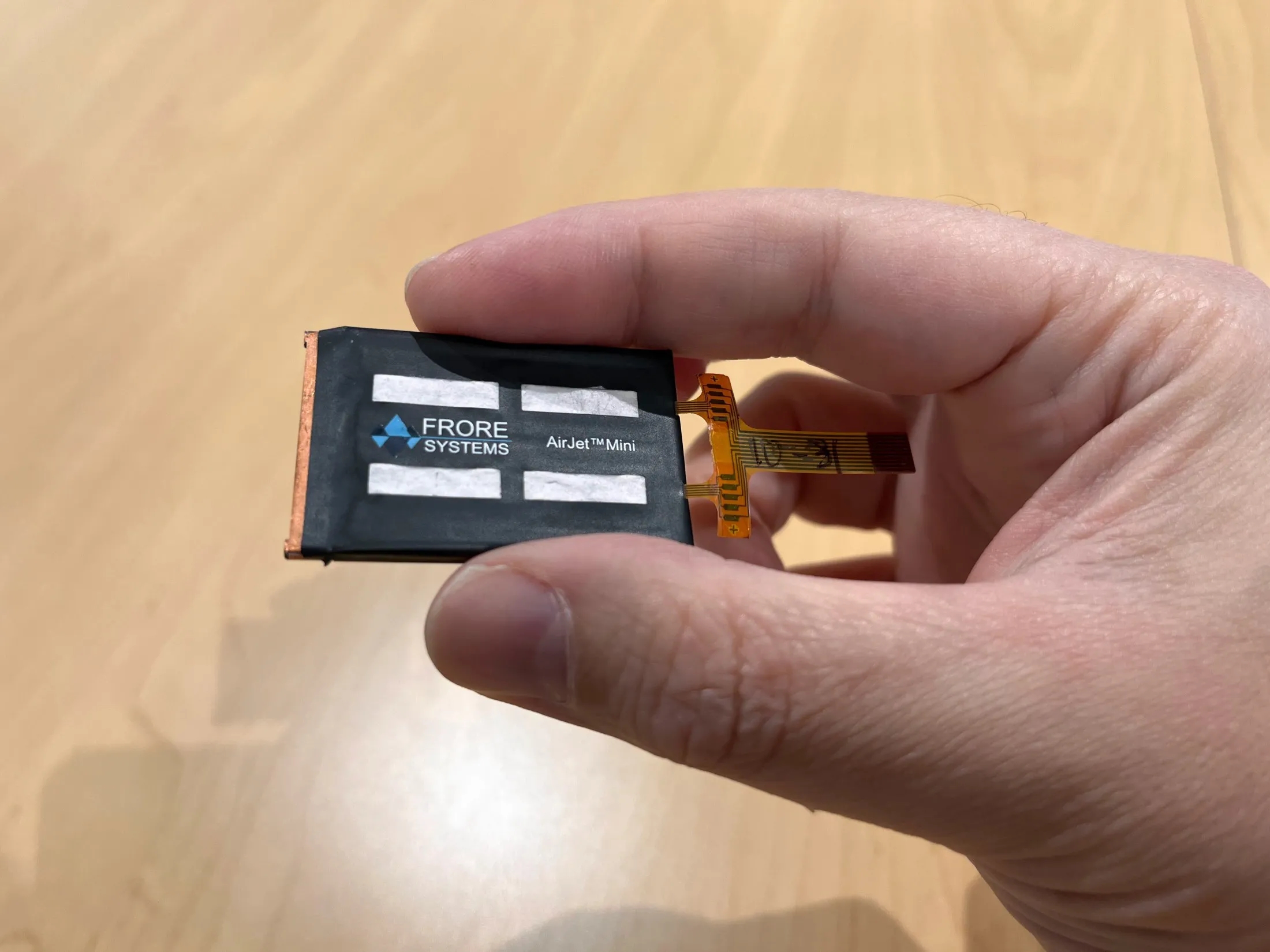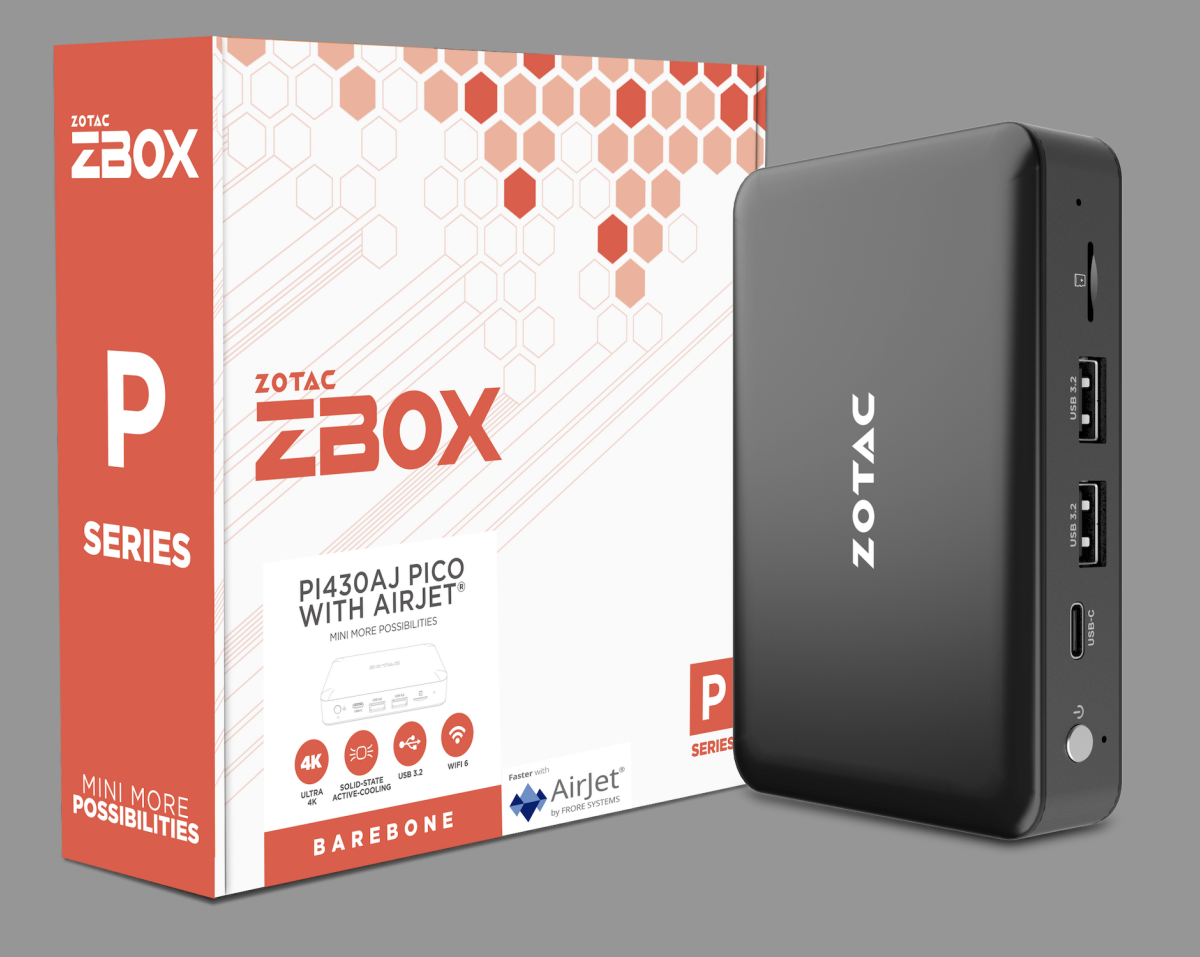
Zotac today announced the Computex debut for its next-generation Mini-PC products marketed in the ZBox family. Powered by Intel's Alder Lake-N, the ZBox PI430AJ Mini-PC (hat tip to FanlessTech) is about what you'd expect from a computing box in this form-factor: it's a small unit with a 7 W Intel i3-N300 (packing 8 Alder-Lake efficiency cores), integrated UHD graphics, up to 16 GB of LPDDR5 memory, and a single NVMe SSD.
But its inclusion of Frore System's AirJet technology is where it separates itself from all others; this is a Mini-PC that promises the performance of an active-cooled Mini-PC while dispensing with large and noisy cooling fans.

Zotac's Computex 2023 booth will showcase a live demonstration of the world's smallest Mini PC equipped with the revolutionary AirJet solid-state active-cooling solution. This groundbreaking mini-PC will be the first product of its kind in the world to feature the revolutionary technology by Frore System.
ZOTAC
Frore System's AirJet aims to reduce the cooling footprint requirements. Fans are simple, reliable, and effective at cooling electronics; decades of incremental improvements on that tech have shown us that the low-hanging fruit for cooling improvement through design have been mostly exhausted (Noctua is one of the few companies considered to be continuously pushing the envelope on its fan designs, and even then, it's a slow, iterative process). But Frore System's AirJet is a new philosophy for system and chip cooling - one co-developed with Intel, for whom cooling space efficiency is paramount due to its High Performance Computing (HPC) products.

AirJet works by pushing ultrasonic waves of air through the fin-like structures across each AirJet "chip", guiding the cool airflow through the AirJet's surface area and moving it away from the silicon components themselves. According to Frore Systems, this approach brings numerous benefits compared to basic fan cooling: AirJet is capable of dissipating the same amount of heat as fan-based coolers, while maintaining low power consumption (it's still active cooling, as it needs to generate the ultrasonic waves, but it's more power efficient than fans) as well as silent operation.
It remains to be seen exactly how efficient Frore System's AirJet can be. Its application on Mini-PCs makes sense: they're products where space is at a premium, even more so than typical desktop systems. This'll be the first consumer-available application of the tech; if it's all that Frore Systems wants it to be, then we may be well on our way towards smaller, more efficient systems that can dedicate most of their volume area to processing chips, instead of the inefficient volume occupied by system fans.







